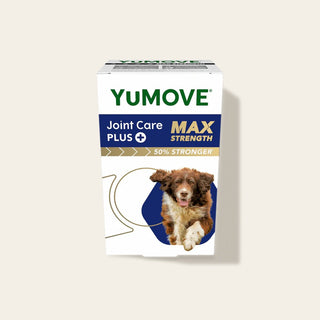

Dehydration in Dogs
We all get dehydrated from time to time. From working up a sweat whilst exercising, to basking in the sunshine on a beautifully warm summer's day, our bodies naturally gain and lose water throughout the day - and our pets are no different.
In this guide, we take a look at what dehydration is, what causes dehydration in dogs, the signs of dehydration in dogs, and what to do if your dog is dehydrated.
So, without further ado, let’s get started.
Dehydration in dogs
Dehydration starts to occur when the body loses more fluid than it’s taking in. All mammals, from humans to dogs, rely on adequate water intake to keep their bodies functioning properly.
While most people know that good nutrition is essential for overall physical and mental health (in both humans and pets), we often forget just how important water is.
Water helps to lubricate joints, support internal organs, and regulate body temperature. It also aids in dogs' digestion and helps cells to absorb nutrients.
It’s normal for a dog’s body to gain and lose water throughout the day. Panting, breathing, urinating, defecating, and evaporation through the paws all contribute to normal water loss, which your dog compensates for by eating and drinking.
Causes of canine dehydration
The most obvious cause of dehydration is a lack of water intake, which may occur if your dog doesn’t have access to enough drinking water when left alone, for example.
Whether you’re at work during the day or are popping out in the evening, you should always ensure that your dog has access to enough fresh water so that they don’t run out. It goes without saying that your dog needs water throughout the day, but especially after exercise, long walks, or when it’s warm outside.
If your dog is unwell (and particularly if they have a fever), they may have difficulty drinking, or may not feel like drinking as much as they normally would.
Increased water loss can also contribute to dehydration. Lots of exercise and lots of panting will increase water loss. Also, bouts of vomiting and diarrhoea can increase water loss, and can rapidly lead to dehydration.
If you think your pet isn’t taking in enough fluid, or is losing more than usual, you should always seek advice from your vet. Not only is dehydration dangerous by itself, but it can also hint at underlying issues.
What are the signs of dehydration in dogs?

Since our four-pawed pals can’t tell us when they’re thirsty, or when something’s wrong, it’s helpful to be able to spot the tell-tale signs of dehydration.
Remember! Some of these signs may not always be apparent until more serious dehydration has developed. You should always call your vet as soon as possible if you have any concerns about dehydration.
Some of the signs of dehydration in dogs include:
- Dry or sticky gums
- Lethargy
- Loss of appetite
- Loss of skin elasticity
- Reduced energy levels
- Panting
- Sunken eyes
- Thick saliva
- Vomiting
- Increase heart rate
What to do if your pet is suffering from dehydration
Dehydration can be life-threatening, so it’s vitally important to respond quickly if your dog is displaying any symptoms.
If your dog appears to be dehydrated:
- Call your vet! Listen carefully and follow any instructions given.
- Encourage them to drink small amounts of water every few minutes.
- Give them water with dog-safe electrolyte replacement powder, to support rehydration.
- Small, moisture-dense meals can also increase fluid intake (such as a tinned food or chicken breast).
- Be careful not to offer too much water too quickly, as this can cause vomiting.
- Set your dog up in a safe, cool space. Being too hot can contribute to dehydration.
Those hot summer days are perfect for leisurely strolls (when the temperature drops!), and relaxing afternoons spent lounging around at home. Be sure to keep your dog properly hydrated and safe during warm weather, and consider supporting their mobility with YuMOVE! We’ve got something for dogs of all ages, from YuMOVE Joint Care for Young Dogs, to YuMOVE Joint Care for Adult Dogs, and YuMOVE Joint Care PLUS for older, stiffer dogs.
Previous article
When and how to clean your dog's earsUpcoming article
Signs of stress in dogs



